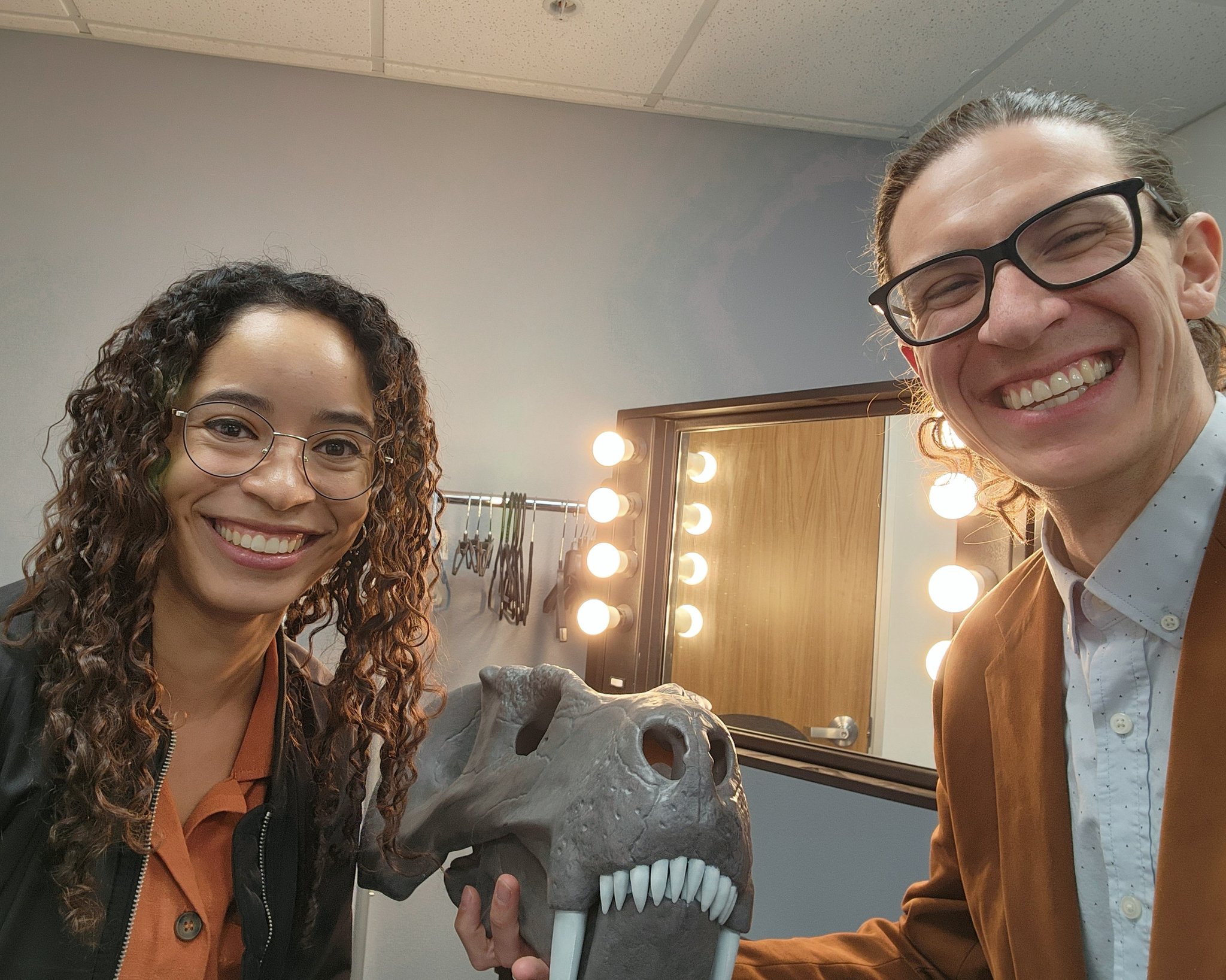Idaho State University Paleontology Professor Featured on PBS' NOVA
November 8, 2023

An Idaho State University paleontologist has been featured on one of the nation’s premier science television shows.
Brandon Peecook, assistant curator of paleobiology at the Idaho Museum of Natural History and assistant professor in ISU’s Department of Biological Sciences, was one of the experts on a recent episode of PBS’ NOVA. Peecook shared his insight into the largest mass extinction event in Earth’s history, the Permian mass extinction, in an episode titled Ancient Earth: Inferno. The Permian mass extinction happened roughly 252 million years ago and decimated 80 percent of all the species on the planet. The episode is one of five exploring ”the epic story of our planet, featuring the most dramatic events in Earth’s 4.5-billion-year history, from its birth to the emergence of humanity.” In addition to running in the United States under the NOVA banner, the series originally aired on the BBC earlier this year as EARTH: One planet. Many lives.
"It was a thrill to bring my science and expertise, as well as the Idaho Museum of Natural History, to a BBC/PBS co-production with such a huge global reach,” said Peecook. “The support from the Bengal community has been great; I've even had emails from folks who graduated in the 60s telling me how much they enjoyed the show."
In May, Peecook and his colleague, L.J. Krumenacker, adjunct professor of geosciences and affiliate curator at the IMNH, were featured on Idaho Public Television’s Outdoor Idaho. In the episode titled Prehistoric Idaho, the show delved into what Idaho’s fossil record “can tell us about the area’s history and wildlife” and took “a look back at what the state looked like millions of years ago, 10,000 years ago, and what remains today.”
"Alongside conducting scientific research and engaging students in the classroom, reaching out to the public is one of the most important things a scientist can do,” Peecook said. “Unsettling as it may be, the fossil record and mass extinction events, in particular, are exceedingly relevant to the modern world that we humans are changing so severely: how do we know what we know about past extinction events, and how can we use that information to make the best choices today?"
For more information on the ISU Department of Biological Sciences and Idaho Museum of Natural History, visit isu.edu/biology and isu.edu/imnh.
Categories:
